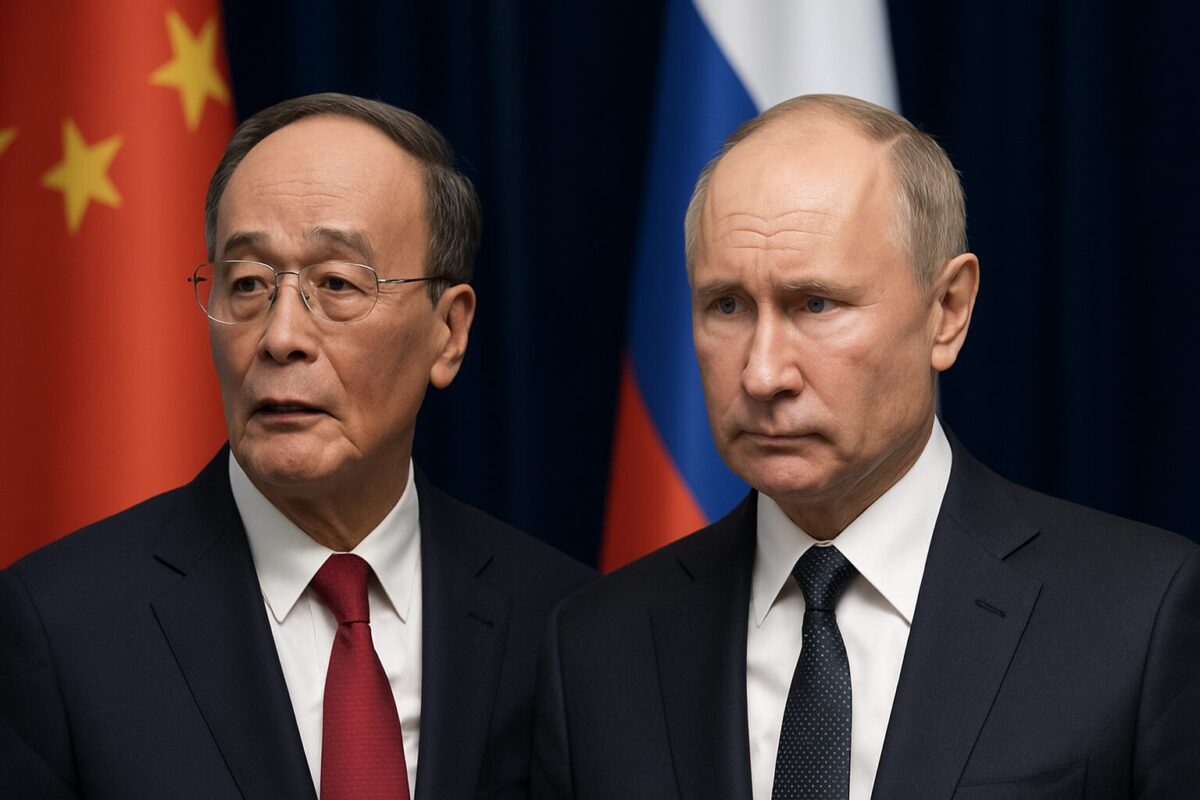
What the Kremlin Won’t Say: China’s Espionage Threat and the FSB Report
Publicly, Russia and China present themselves as “strategic partners” — speeches, photo ops, handshakes at economic forums. But behind the scenes, it’s a different story. A classified analytical report from Russia’s FSB, obtained by The New York Times, reveals deep mistrust. More than that: the FSB considers China a serious threat.
This isn’t about general concern. The document contains detailed descriptions of espionage activity, recruitment attempts, historical revisionism — and even potential territorial ambitions. It’s a warning not only to Russia.
Espionage disguised as “friendship”
The FSB explicitly names China as a country actively targeting Russian officials, journalists, scientists, and businesspeople. The goal: access to sensitive information, particularly in the area of defense technology — including aviation, drone systems, and military R&D linked to the war in Ukraine.
This isn’t traditional spying through covert agents. It’s hybrid intelligence work at the intersection of academia, science, and business. Chinese companies, research institutions, and commercial fronts approach individuals with access to critical know-how — especially those struggling financially or dissatisfied with conditions in Russia.
China is especially active in border regions — places where the economy is weaker and trust in Moscow less absolute.
The Far East: not quite Russian?
A separate section of the FSB report focuses on China’s growing “historical interest” in Russia’s Far East. It highlights scientific expeditions and media narratives claiming that parts of these territories historically belonged to China.
In 2023, Beijing released an official map that renamed several Russian cities — including Vladivostok — with historical Chinese labels. For Moscow, this triggered alarm: in geopolitics, maps are never just about geography. The report mentions that Chinese academics are searching for “evidence of ancient Chinese peoples” in these regions — perceived as a foundation for future territorial claims.
The FSB states that such “pro-Chinese revanchist sentiment” must be countered — but cautiously.
Why the FSB stays silent
Despite recognizing the threat, the FSB cannot act openly. The final paragraph of the report stresses that any counterintelligence measures against China must be approved by top political leadership. Otherwise, agents risk disciplinary action — or worse.
This explains why Russian media rarely criticize China. The Kremlin continues to promote the image of a “brother nation” offering support amid Western isolation. And intelligence services must walk a tightrope: seeing the threat, but not addressing it publicly.
In effect, the FSB acknowledges that China is not a partner, but a strategic competitor with long-term ambitions. Yet it can do nothing without political permission.
Revelant
What does this tell us?
- Russia is losing its security autonomy. Even its intelligence services cannot respond to external threats when they come from so-called “friendly regimes.” This creates a disconnect between policy and reality.
- China plays the long game. Territorial narratives are framed as academic inquiry. Espionage hides behind business and exchange programs. The goal is not immediate gain — it’s influence.
- The Russian Far East is a weak point. Lower living standards, less national cohesion, and strategic neglect make these regions vulnerable to soft power.
- Formal alliances do not equal trust. In fact, they paralyze defensive action. The FSB admits as much: “We see it — but we can’t move without permission.”
The leaked FSB report offers a rare glimpse into Russia’s real foreign policy — stripped of propaganda. And the message is clear: China is maneuvering, and Russia is being maneuvered.
Formally, it’s an alliance. In practice — a quiet competition where one side cannot speak. The only question is: how long can that silence last before it becomes dangerous?















